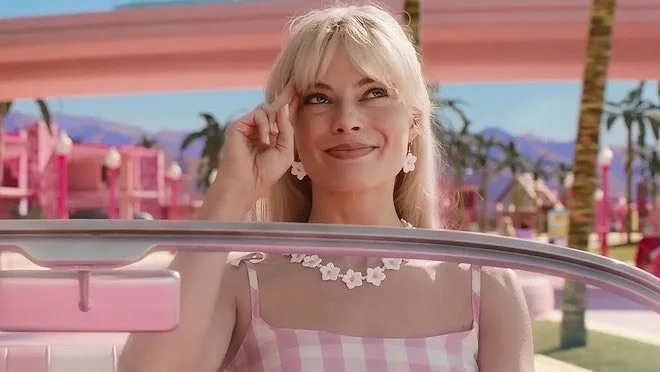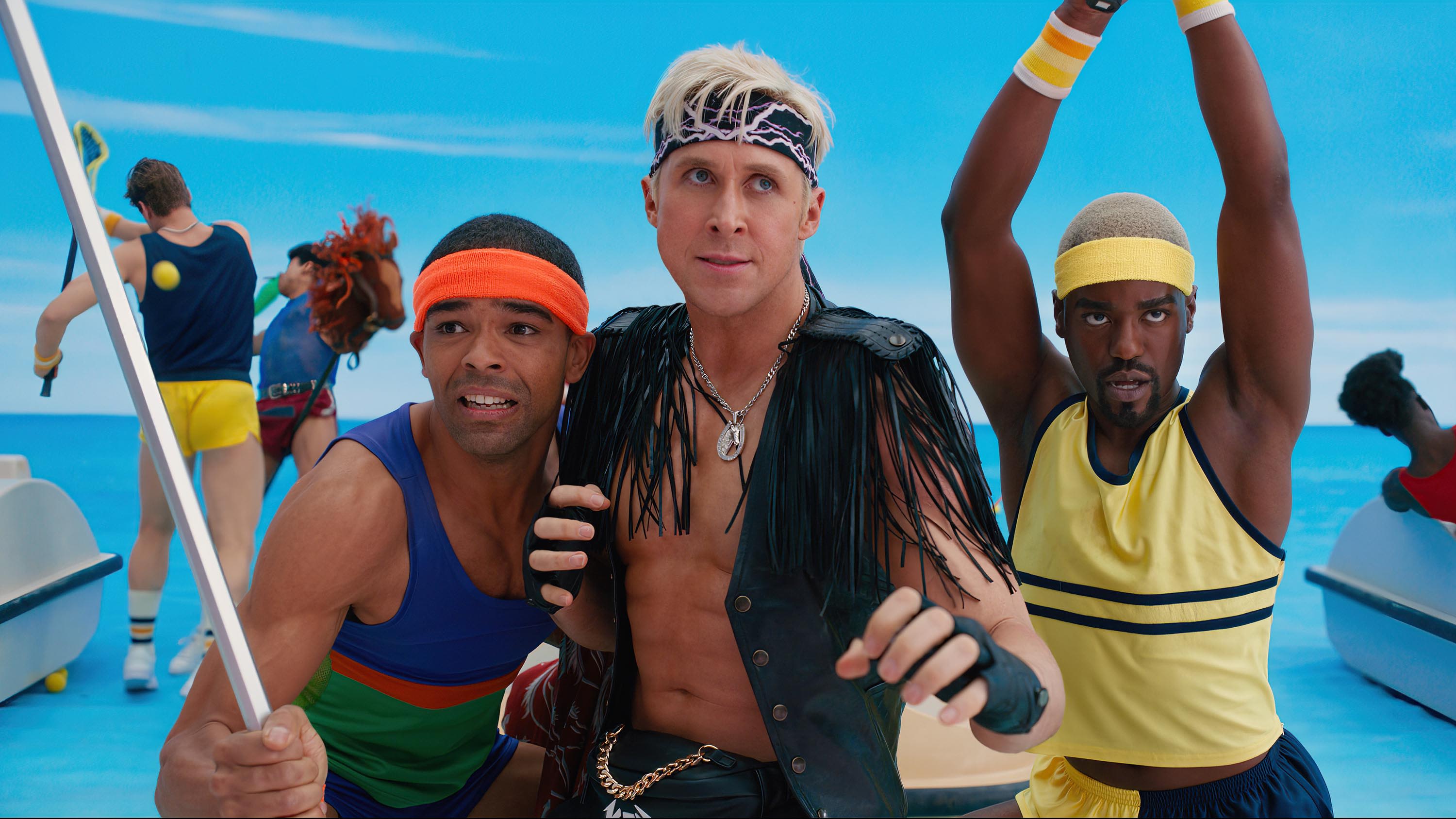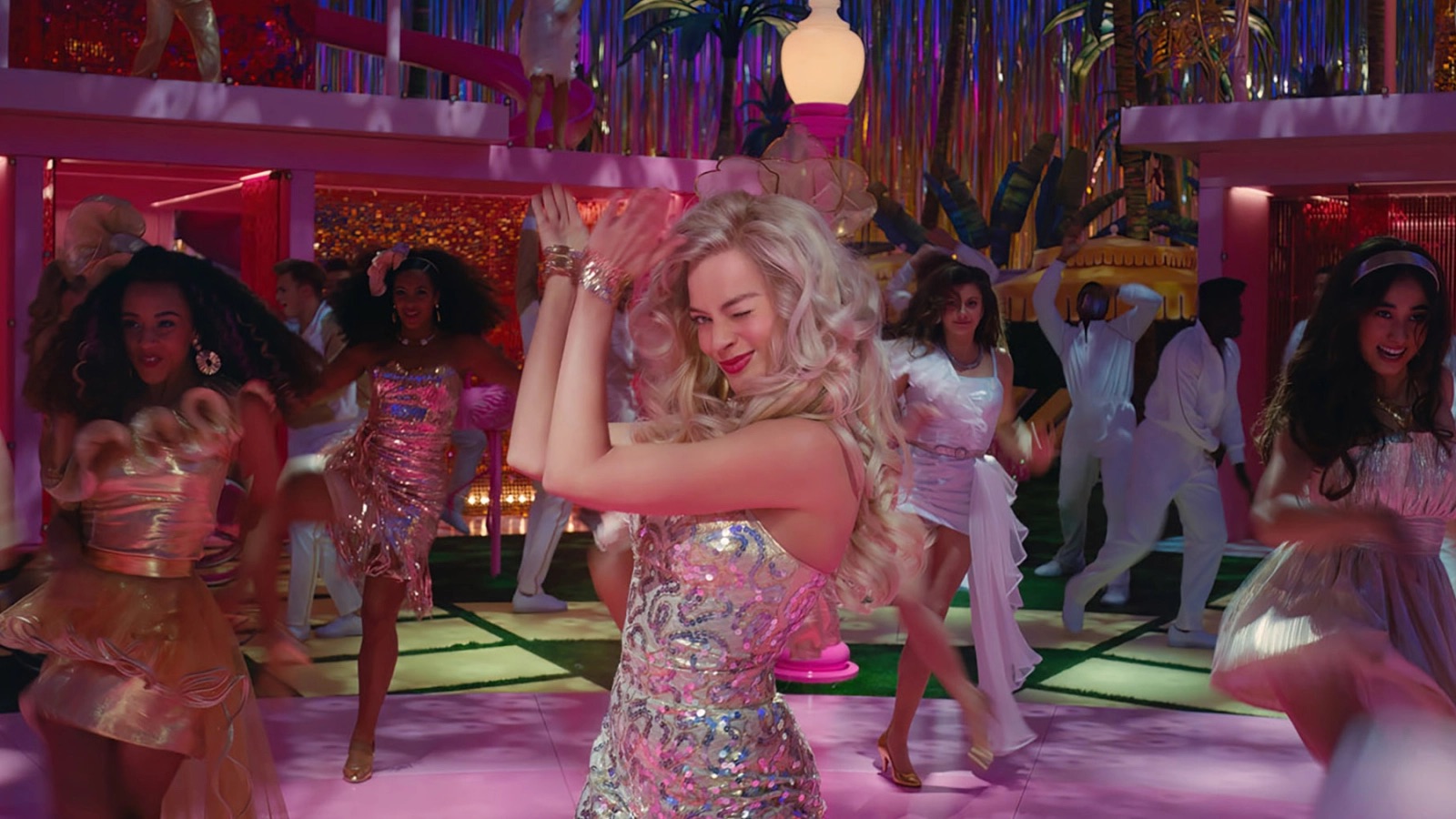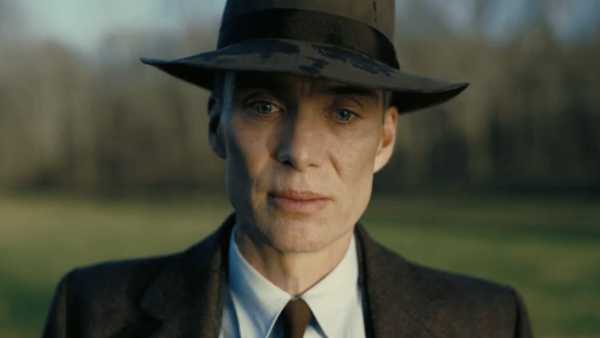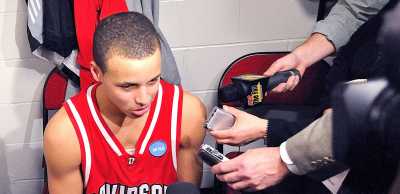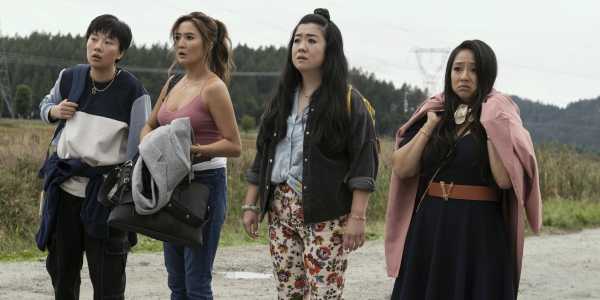Tickled Pink





Film
Movies made for women are usually marketed in ways that feel egregiously calculated and grossly reductive. Movies made by women are often treated as if they should be graded on some kind of lesser artistic curve. Meaning that movies made for women AND by women have the unenviable and altogether impossible task when telling a type of feminist story filtered through a female lens – it needs to be obvious but not oblivious, self-aware but not self-aggrandizing, and pointed but not too pointy. Ultimately, the bottom line is if the movie is commercially viable, otherwise, you can all but guarantee that the next time a female director is at the helm of a big movie geared towards women, she’ll have less money at her disposal. That’s a hard drink to mix.
To those familiar with her work, it is no coincidence that Greta Gerwig was more than up for the challenge and has mixed an exceptionally delicious cocktail of a film. With Barbie, Gerwig has found an archetypal muse to act as a conduit for her own socio-political and philosophical probing. Co-written with her husband, Noah Baumbach, this is a note-perfect fusion of creator meets subject matter that manages to be bold and transgressive while still being incredibly fun and easy on the eyes. Gerwig deploys Barbie as a kind of trojan horse for exploring a range of complex themes including ideas of female representation, the perils of capitalism, and metaphysical examination. Barbie has a lot of ideas but remembers to stop and enjoy playtime in the dollhouse, too.
SPOILERS APLENTY
When Barbie (Margot Robbie) wakes up in her own pink world, she sees a perfect place populated with perfect beings. Her home, Barbie Land, is a matriarchal utopia. A diverse assemblage of strong, independent, and confident Barbies hold all the positions of power and influence in Barbie Land; there’s President Barbie, Writer Barbie, Physicist Barbie, and Doctor Barbie, among many others. Everything runs flawlessly smooth in Barbie Land. There is no conflict and nothing to worry about. While the Barbies run the show, their Ken counterparts partake in beach-related activities as part of their day-to-day life. All Barbies and Kens are completely content, and life in Barbie Land is uncomplicated and pleasurable. Every day is the best day ever. Think of The Truman Show but a lot pinker.
‘Stereotypical’ Barbie really has it all. She’s a fashionista with a fabulous home but is still genuinely humble and kind. She has an amazing group of best friends, for whom she acts as their biggest cheerleader. And she has the unwavering affection of the perfect guy, ‘Stereotypical Ken’ (Ryan Gosling), who is crazy in love with her. In fact, if it were up to Ken, he and Barbie would have a more serious romantic relationship. Except neither of them knows what that would even entail! That is because Barbie Land is an innocently chaste, fully transparent, and pure society. Why? The underlying inference is that playtime in Barbie Land with Barbie and Ken dolls is conceived from the intuition of a child and their surface-level understanding of what perfection is. If the mechanics of this world are then inherently tied to this worldview, then it is safe to assume that there is nothing happening on a deeper level or below the surface in Barbie Land.
So then naturally there would be no need to distinguish between Barbie’s private and public life – I mean her Dreamhouse doesn’t even have walls or doors! This idyllic perfection of Barbie Land’s exteriority ultimately removes the capacity for any individual interiority. If Barbie is perfect because the children playing with her believe her to be perfect, that makes Barbie’s perfection intrinsically foundational to her own existence. But if her perfection is indeed just a construct, that ultimately means it’s artificial. And if her perfection is artificial, then in a sense, so is her own existence. Life in plastic, it’s fantastic, eh?
Regardless, Barbie’s days consist of a seamless routine – and they sometimes end with a perfectly choreographed group dance party because why wouldn’t they? In the middle of one of these groovy disco boogies, Barbie spontaneously asks nonchalantly but loudly, “You guys ever think about dying?” The music cuts immediately and the other Barbies and Kens are stunned by what they’ve heard. Wait, what’s there to worry about when everything is this perfect? Barbie shrugs it off when no one knows what she’s talking about. But the next morning, the monotonous repetition of Barbie’s routine triggers feelings of doubt and despair and she discovers some newfound imperfections, including cellulite on her thigh, morning breath, and that her feet have gone flat. Oh, the horror! Something has gone terribly wrong. Barbie Land is starting to feel like Punxsutawney, Pennsylvania from Groundhog Day.
To course correct these occurrences, Weird Barbie (Kate McKinnon), a disfigured Barbie who has seen some shit and experienced the perils of overly aggressive playtime, instructs Barbie to travel to the Real World to find and help the child that is playing with her. It’s as if Dorothy lived in Oz and needed to go to Kansas. And of course, Ken tags along to support Barbie and to further gain her affection – you can’t forget Toto! Crossing a myriad of Barbie-esque backdrops, the duo gleefully travels via car, boat, spaceship, bicycle, camper van, and snowmobile, before arriving in Los Angeles wearing bright neon activewear and matching rollerblades. As they skate along the Venice Beach Boardwalk, Barbie quickly realizes that she is not in Oz anymore. Quite contrary to Barbie Land, the Real World is something of a patriarchal dystopia. Barbie becomes increasingly confused and insecure as she faces menacing sexual objectification and comes face-to-face with toxic masculinity for the first time. Conversely, Ken finds this male-dominant system to be rather enlightening and enjoys a newfound acceptance and respect in the Real World that he had never experienced in Barbie Land. How perversely serendipitous.
While Ken is getting his own education on the Real World’s patriarchal system, Barbie tracks down her previous tween owner Sasha (Ariana Greenblatt), who wastes no time firing off fierce criticism at Barbie and blames her for the promotion of unrealistic beauty standards. What if Andy from Toy Story looked life-like Woody directly in the eyes and told him that his mere existence was to blame for the debilitating mental health and well-being of an entire generation of young boys? Sasha’s not wrong by the way, but it’s certainly hard for Barbie to hear this firsthand for the first time. Is now the right time to call attention to the fact that Sasha is the name of one of the original Bratz dolls? Is it an Easter egg that together Sasha and her three other friends might share some resemblance to the original four Bratz dolls named Cloe, Jade, Yasmin, and yes, Sasha? I’ll let you decide if this just happens to be a coincidence. To make matters worse, Barbie learns that Sasha’s mother, Gloria (America Ferrera), is going through an existential crisis, which has, in turn, triggered Barbie’s own imperfections and self-doubt. After the CEO of Mattel (Will Ferrell) attempts to put Barbie back in a box, Barbie, along with the help of Gloria and Sasha, manages to escape, and the three travel to Barbie Land.
Upon their return, it’s clear that Ken brought back ideas of patriarchy to Barbie Land with him. In going through his own crisis of self, Stereotypical-turned-Incel Ken brainwashes his fellow Kens to believe they are not just an accessory to the Barbies. They’re in charge now and have forced the Barbies to take on subservient roles. Rather than being doctors, lawyers, or the President, the Barbies are now housewives, maids, and agreeable girlfriends. Barbie’s Dreamhouse is now a mancave (sort of) and the Kens’ lives center around lite beer, mansplaining The Godfather, and covering an acoustic Matchbox Twenty song on the guitar to help to underline the shift in gender roles. What snaps Barbie out of her depression and helps reset the matriarchal structure in Barbie Land is an impassioned, throat-clearing monologue from Gloria, which eloquently articulates the complicated and difficult experience of being a woman in modern-day society. She recites it to free the Barbies, at which point they pin the Kens against one another leaving the Barbies to regain their positions of power. Barbie and Ken take some time to reflect on their wrongdoings and work through their relationship, and specifically address Ken’s reliance on Barbie for his own sense of identity. Both characters find resolve by way of some personal breakthroughs comes the film’s end in ways that might feel expected but also true and earned.
The film’s third act relies on a great deal of perspective-shifting, but the film manages to keep the satire sharp from start to finish. Some common criticism I’ve seen for this movie is that its themes are pre-chewed and spoon-fed to the audience – others have noted that the tone of the film insists on preaching rather than teaching. In the case of Barbie, I’d push back and disagree with detractors that say this film is too propagandist or corporatized for its own good. “Is Barbie a positive or negative force from the feminist perspective, or is she just a doll?” ... “Can a Barbie movie have subversive opinions about capitalism when it is entangled with and reliant upon brand sponsorship?” ... “What does it mean to be alive, to be human?” This movie does not run away from itself – it’s not always enough to just pose tough questions if viewers believe that you’re not interested in providing potential answers. Gerwig never compromises on her scruples or dumbs things down; instead, she makes good on her mission and treats the children in her audience like adults while also encouraging the adults to be a bit more childlike. Does the film resolve every conundrum in its purview? Of course not. And really, how could it possibly do that? Grading it on that steep of a curve could only lead to failure. At the grace of Gerwig’s finesse and her performers’ commitment, Barbie manages to both interrogate and celebrate Mattel’s Barbie enterprise simultaneously. To do one of those things would be impressive – to do both is an achievement. I believe Gerwig handles this juggling act with profound clarity.
There are more than just a handful of filmmaking highlights to touch on still. It’s hard to underestimate just how amazing the production design is thanks to set designer Sarah Greenwood and decorator Katie Spencer. The design is in conversation with Old & New Hollywood alike. It feels like an old-fashioned musical but is also meme-able in the best way possible. This is a fully realized, glossy, and colorful cinematic world that manages to feel both tangible and artificial – it definitely has the kind of "authentic artificiality" that Gerwig was going for. The costume design (Jacqueline Durran) and cinematography (Rodrigo Pietro) are equally transportive and help move the story along as it volleys between Barbie Land and the Real World. While somewhat sporadic and a little cliché, the music curation provided by Mark Ronson and Andrew Wyatt is still pitch-perfect to the world Gerwig has created. Lizzo’s “Pink” gets things started and serves as both a tone-setter and narration device; “Dance the Night,” by Dua Lipa, is a light-hearted disco that would’ve been at home on the Saturday Night Fever soundtrack; and Billie Eilish’s “What Was I Made For?” is a chill-delivering ballad that serves as a final conclusion to the film’s core thesis, which leads to a devastatingly poignant moment late in the third act. I would expect Eilish to once again be in contention for Best Original Song at the next Academy Awards. And lastly, it is worth praising the performances. The cast is great from top to bottom, but special recognition for Robbie and Gosling is in order. Gosling’s gonzo Kenergy is unhinged and hilarious, and he does his absolute best to steal the movie – he often comes close. But Robbie really is still the center of gravity for the film, and she absolutely rises to the occasion. Her performance balances comic sincerity with introspective dread and captures every nuance in between. It’s a tricky performance, and Robbie makes it look easy. I’m glad her streak of bad luck at the box office is over – she is one of our premier actors working today, a true-blue star.
Just nine days after its release, Barbie has grossed north of $775 million at the box office. It’s breaking records left and right. The film had the highest-grossing opening weekend for a film that is not a sequel, remake, or superhero property ever, and it is already the highest-grossing film ever directed by a woman. This movie has printed money and will continue to do so. Part of this is due to excellent marketing by Warner Bros. and Mattel – going to see Barbie in the theater is an event! It’s a chance to dress up in bright pink and pose for a photo op in a life-sized Barbie box. In a year when Singer Barbie, aka Taylor Swift, and her Eras Tour has taken over popular culture and inspired similarly extravagant cosplay, it should be no surprise that there is a huge appetite for this sort of fandom and participation for Barbie. It is no longer a joke to compare this movie to Jurassic Park and it’s potentially being a billion-dollar movie – it’s more than just possible, it’s likely to happen. Barbie is indisputable proof that conversations about the societal pressures facing American adolescent girls and conversations about gender roles can and should happen on the big screen. And what better way to reach a wider audience than to stuff those ideas into a big-budget, crowd-pleasing movie? I can understand someone’s aversion to the merchandising and corporatization of art, but not when it’s this thoughtfully considered and accessible. But let me be clear – this isn’t a girl movie or something for just women to enjoy. This movie is for everyone, men included. Anyone who tells you otherwise is either ignorantly hate-watching like a bigoted bum or is missing the point entirely.
Available in theaters on July 21st
Rated PG-13 for suggestive references and brief language
114 minutes
Froth
In preparation for Barbenheimer, I sought out a flight of beers that would be easy to drink but leave me with something to think about later. With a smoky malted aroma and flavor from Raised Grain Brewing Company in Waukesha, WI, the Six Stone Scotch Ale was the clear standout from my pre-double feature flight. I'd recommend this to beer enthusiasts who are looking for something refreshing but want something with a little more depth and complexity. It was a little peaty-tasting, but I still found it to be really drinkable with a balanced mouthfeel. A great test of our time is deciding whether a beer pairing works better with a Christopher Nolan movie or a Greta Gerwig movie. Safe to say, this passes on both fronts.







